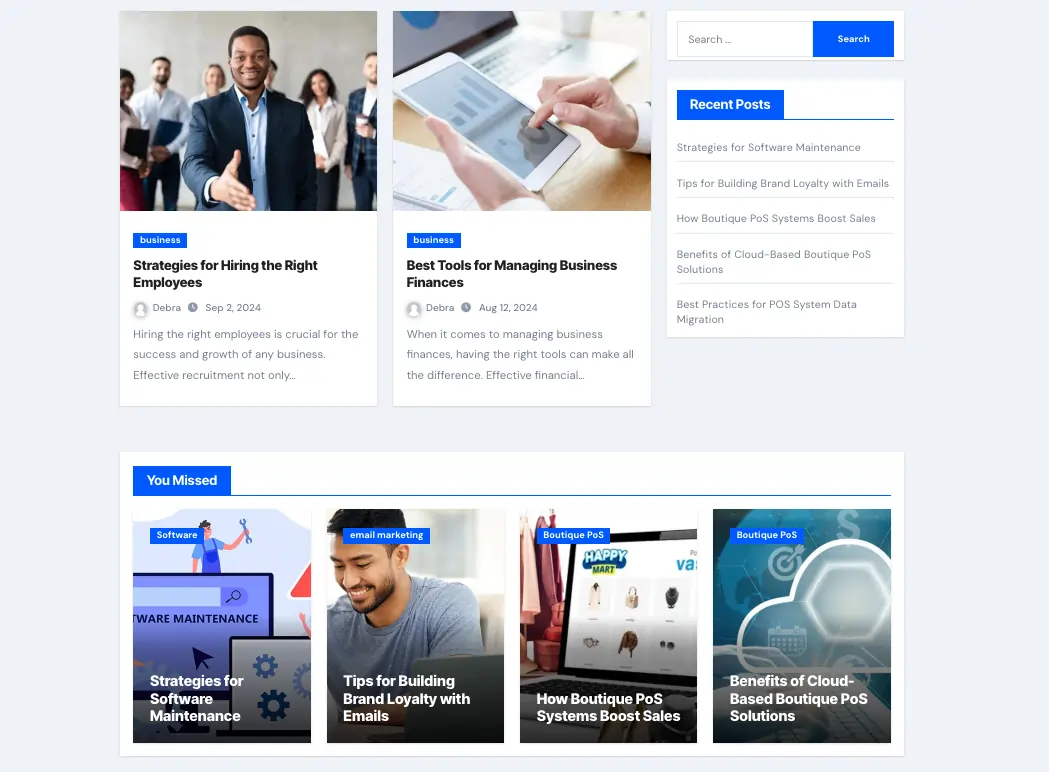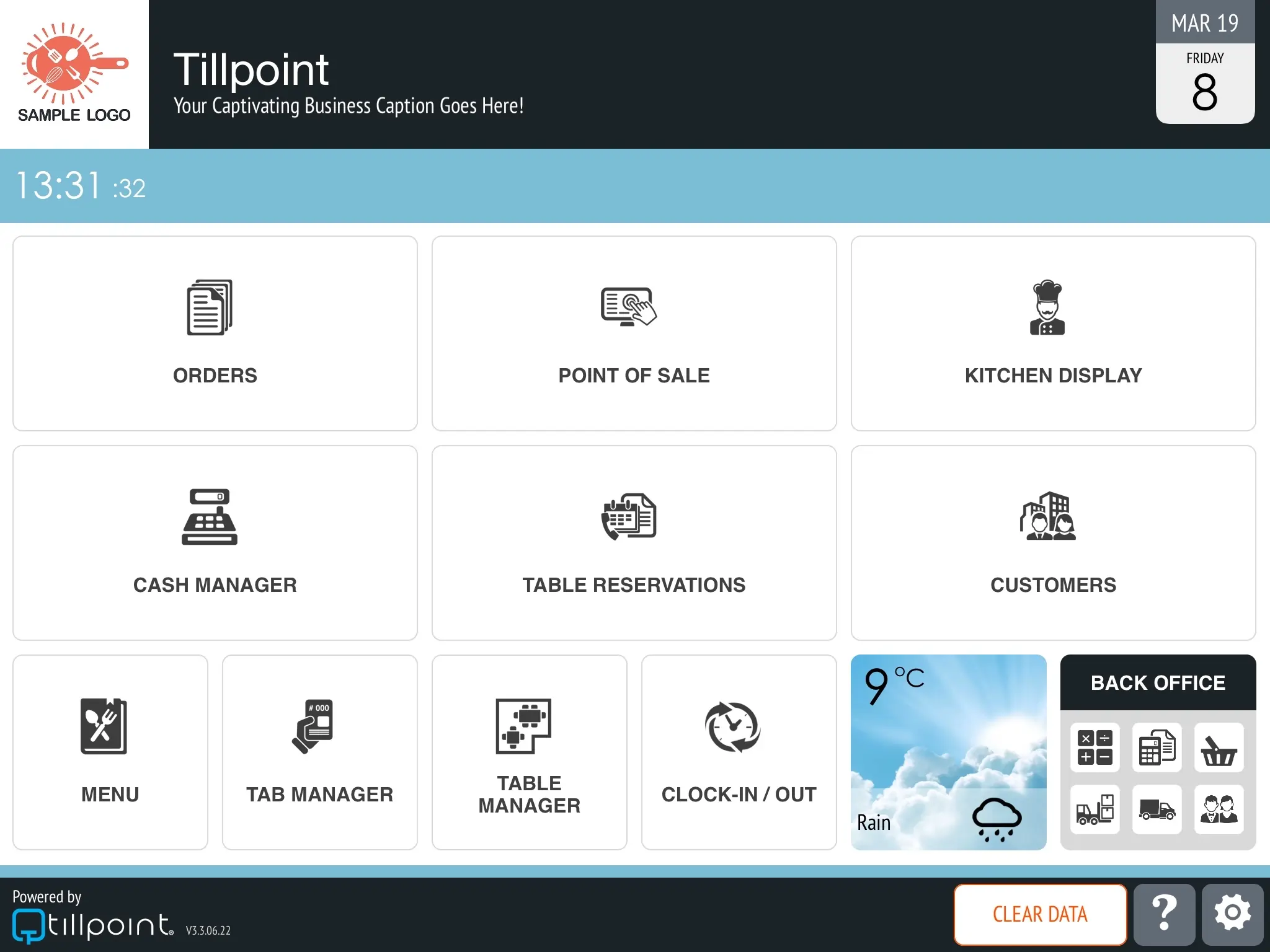Tillpoint’s POS software is built for efficiency, and I found its Point of Sale system to be both intuitive and fast. Even as a first-time user, I was able to process transactions within minutes. Payments can be accepted via credit cards, checks, gift cards, and loyalty points, making it versatile for different business types. One feature I particularly liked was its ability to operate in both online and offline modes, ensuring uninterrupted sales even when the internet was down.
Here are some of the Tillpoint features:
- Customer Relations
- Customer Data Management
- Reports and Analytics
- Staff Management
- Staff Calendar
- Accounting
- Inventory Management
- Hospitality Inventory Management
- Retail Inventory Management
- Integrations and Add-ons
- Promotion Management
- Multi-Location Management
- E-commerce Integration
- Customizable Reporting
- Secure User Permissions
Customer Relations
The CRM tools in Tillpoint stood out when I tested customer engagement features. I was able to set up and manage loyalty programs directly within the system, assigning loyalty points and issuing gift cards effortlessly. The ability to track customer interactions made it easier to personalize promotions and improve retention.
Customer Data Management
The customer data management tools provided a way to store and analyze purchase history, helping with targeted marketing campaigns. I was able to track customer preferences and segment audiences, making it easier to offer promotions that felt relevant. For businesses focused on customer relationship management, these features help strengthen engagement and retention.
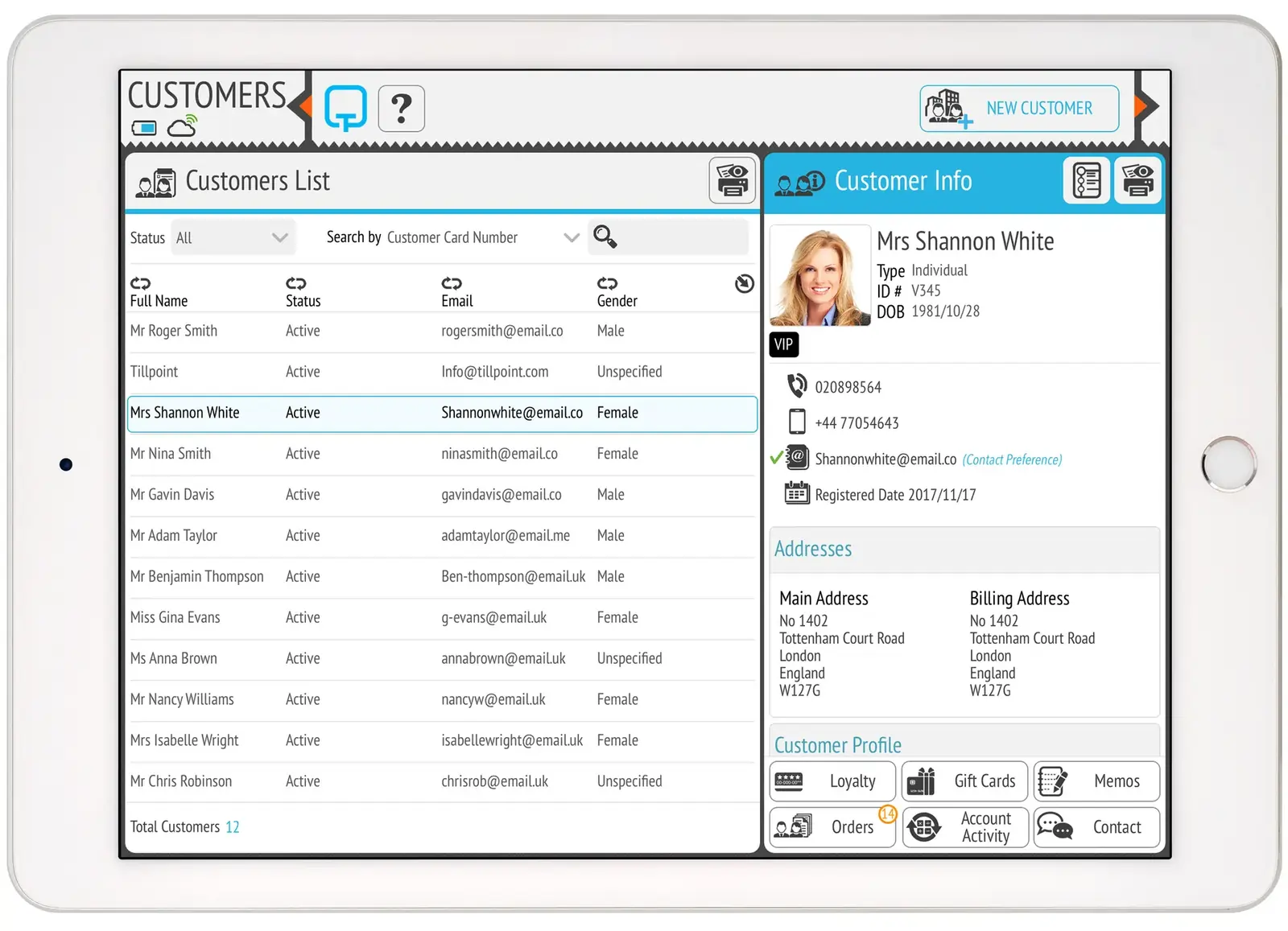
Reports and Analytics
When I tested Tillpoint’s sales analytics and reporting tools, I found them to be detailed and easy to customize. I could track financial reports, monitor inventory levels, and analyze sales trends in real time.
The ability to access reports remotely through the cloud-based POS system made it easier to make informed decisions, whether in the office or on the go. Having insights into multi-location management and overall business performance helped streamline operations.
Staff Management
I explored the staff management tools and found them effective for tracking employee performance and managing timesheets. The built-in staff profile feature allowed me to monitor work hours and communicate directly through the app, making it easier to handle team coordination.
This is especially useful for businesses managing multiple employees across different locations.
Staff Calendar
The staff calendar in Tillpoint simplified shift scheduling. I was able to assign shifts, track employee availability, and approve time-off requests all in one place. This feature made workforce management more efficient and helped avoid scheduling conflicts.
For businesses juggling a large team, having everything integrated into the POS software reduces the need for separate scheduling tools.
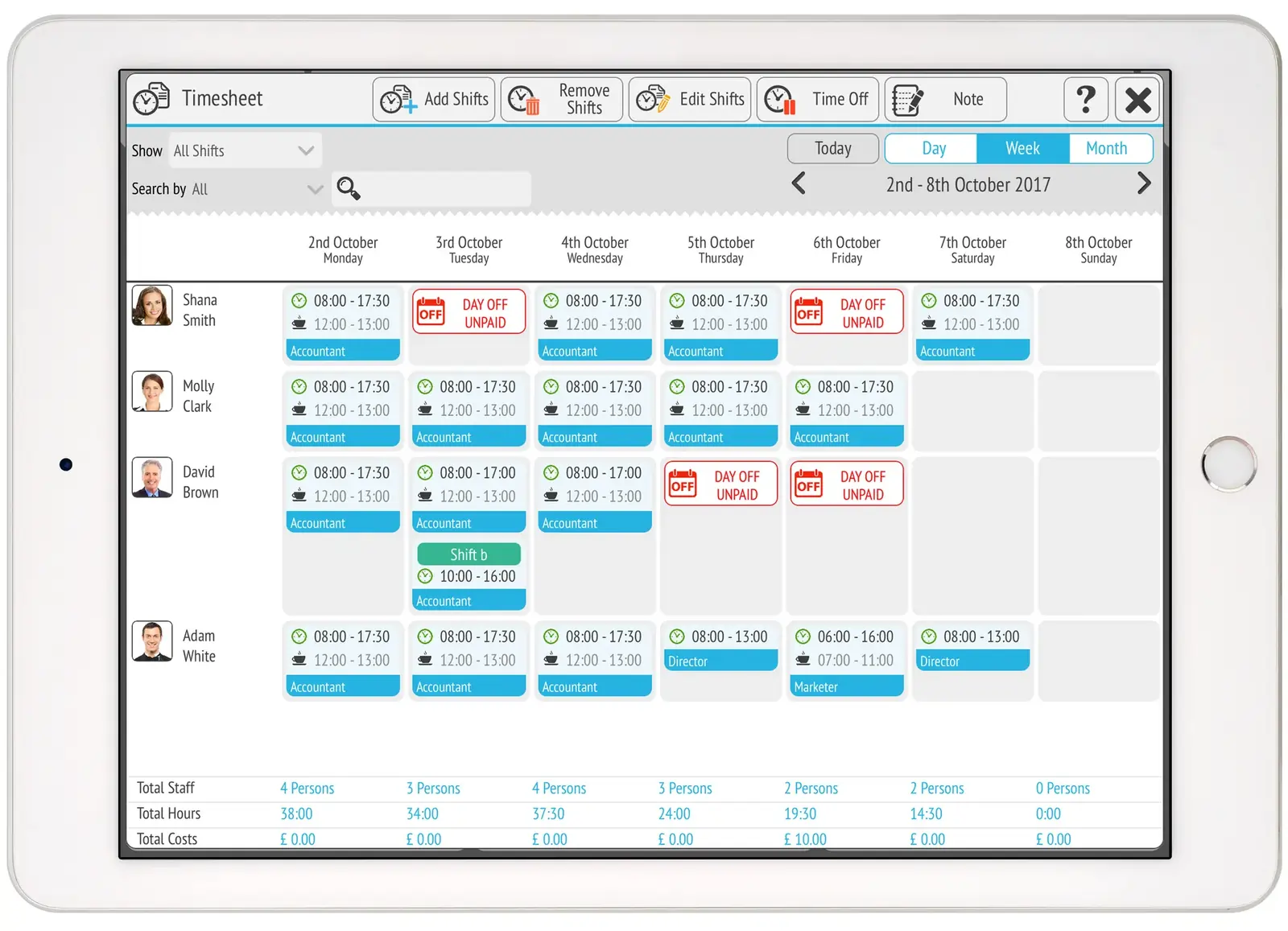
Accounting
When I explored Tillpoint’s accounting features, I found its double-entry bookkeeping system to be a useful addition.
The ability to handle billing, bank reconciliation, accounts payable, and payroll integrations directly within the Point of Sale software eliminates the need for separate accounting tools. This integration makes it easier to keep financial records organized and aligned with business transactions.
Inventory Management
Tillpoint’s inventory tracking tools stood out for their depth and ease of use. I was able to monitor stock levels, track individual items, and receive low-inventory alerts, which helped me restock efficiently.
The system also provided insights into best-selling products, allowing for better purchasing decisions. For businesses managing both in-store and selling online, the seamless e-commerce integration ensures inventory remains synced across all channels.
- Hospitality Inventory Management
I also tested how Tillpoint’s inventory tracking functions in the hospitality industry, and it was well-suited for managing perishable goods. The system allowed me to monitor supplier orders, track ingredient usage, and maintain stock levels in real time.
This helps prevent over-ordering and reduce waste—critical factors for businesses in the food and beverage sector. The ability to integrate with multi-location management also makes it easier to oversee stock across different outlets.
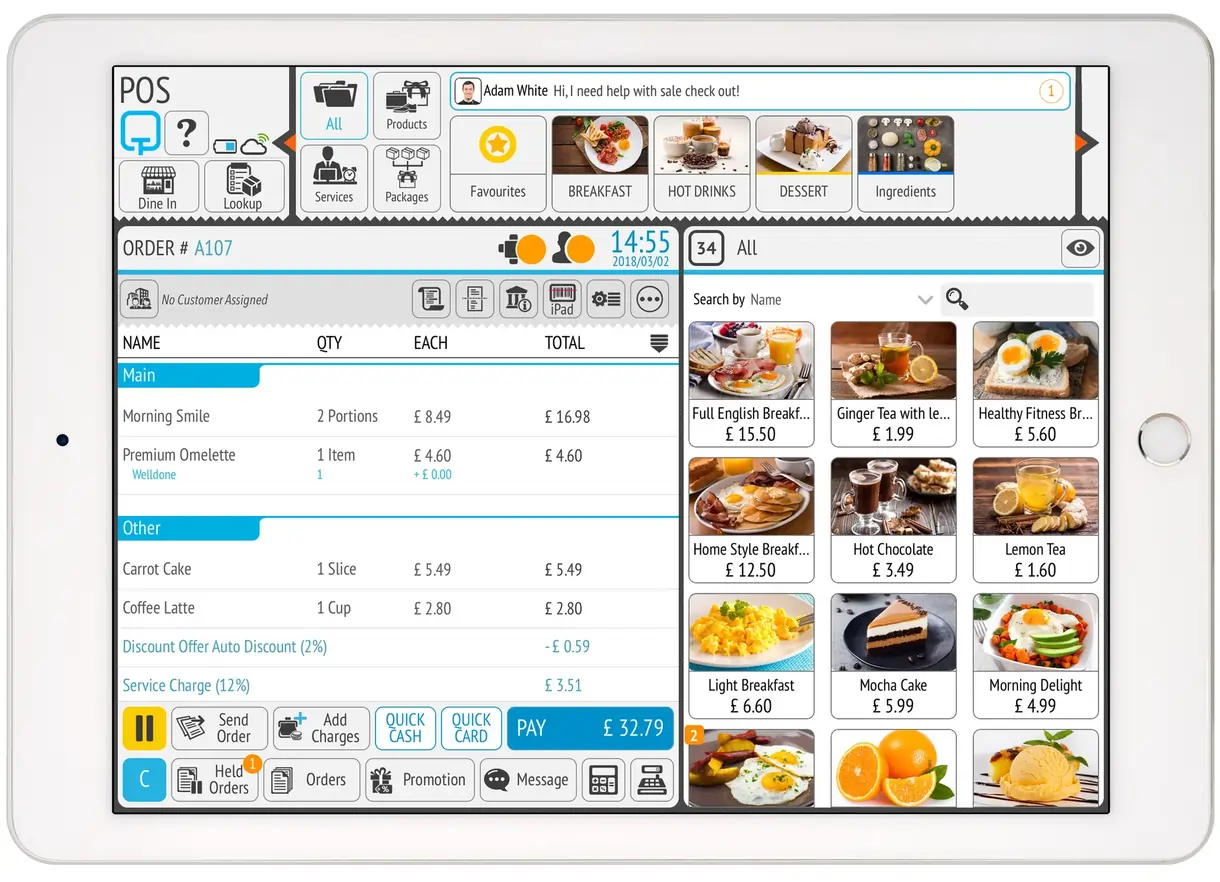
- Retail Inventory Management
For retail operations, Tillpoint offers robust tools to manage product variants, set reorder points, and generate detailed inventory reports.
found them highly effective for organizing stock and keeping inventory levels optimized. The system allows businesses to manage product variants, set reorder points, and generate detailed inventory reports. These features made it easy to track stock movement and avoid both overstocking and stockouts.
I also liked how sales analytics integrated with inventory tracking, providing insights into which products were performing best. For businesses focused on selling online and in-store, the e-commerce integration ensures inventory remains synced across all channels. This level of automation makes stock management more efficient and reduces manual work.
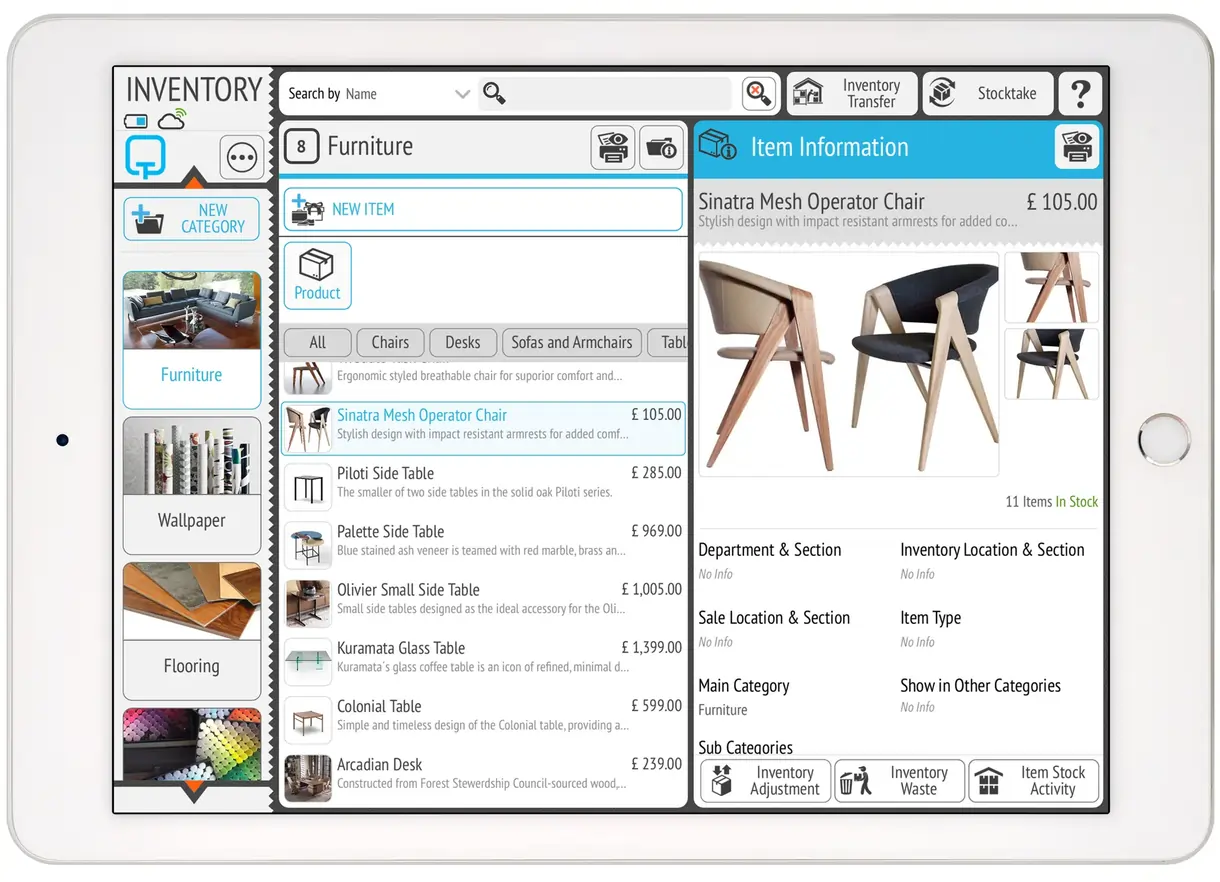
Integrations and Add-ons
When I explored Tillpoint’s integrated payment solutions, I found the system to be highly flexible. It supports seamless transactions through platforms like iZettle, SumUp, and PayPal, allowing payments via cash, credit cards, Apple Pay, Google Pay, and more. I also tested its ability to process gift cards, punch cards, and loyalty points, which makes it a great option for businesses looking to enhance their customer relationship management (CRM).
Another useful integration is with MailChimp, which allowed me to send personalized emails, promotions, and rewards directly from the app. This feature helps businesses strengthen customer engagement and run targeted marketing campaigns without needing a separate email platform.
Promotion Management
Tillpoint makes it easy to create and manage promotions, discounts, and loyalty programs directly within the POS system. I was able to set up different types of discounts, including percentage-based and fixed-amount promotions, and apply them to specific products or customer groups. This flexibility helped in implementing sales analytics-driven strategies that increase revenue and improve customer retention.
For businesses focused on selling online and in-store, having promotions integrated across both channels ensures consistency and maximizes impact. Whether running seasonal sales, member-only discounts, or automated loyalty rewards, the ability to manage everything from one system simplifies marketing efforts.
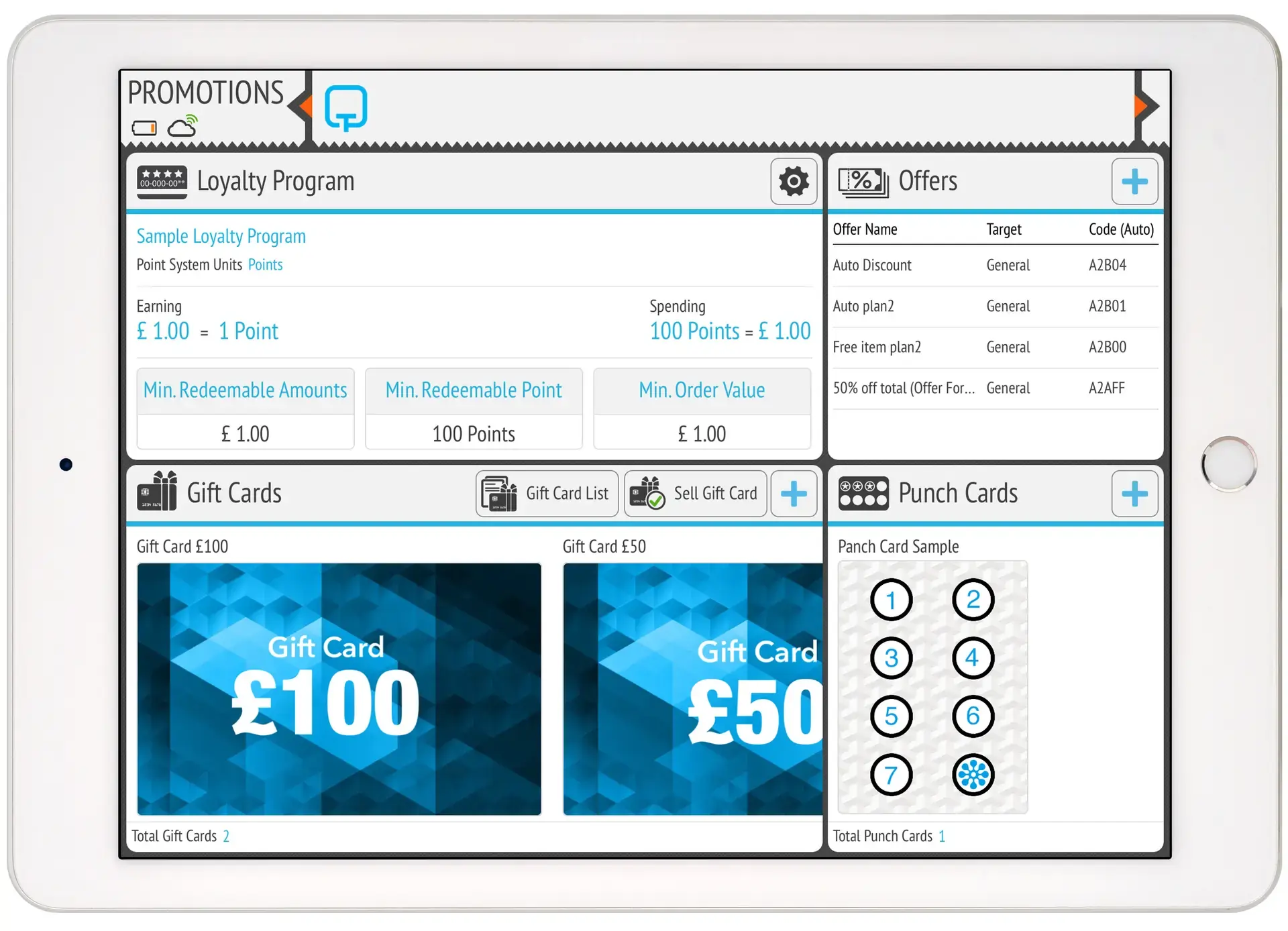
Multi-Location Management
When I tested Tillpoint’s multi-location management features, I found the centralized system made it easy to oversee multiple stores. From a single interface, I could track inventory tracking, monitor sales, and manage staff across all locations. This level of control helps ensure consistency in pricing, stock availability, and overall business operations. For businesses expanding to multiple outlets, having real-time data across locations is crucial for maintaining efficiency.
E-commerce Integration
Tillpoint’s e-commerce integration proved useful for unifying online and offline sales. I tested how the system synced inventory across both channels, and it worked seamlessly—preventing overselling and ensuring stock levels remained accurate.
This synchronization creates a cloud-based POS system that provides customers with a smooth shopping experience, whether they’re buying in-store or selling online. The ability to manage all sales from one platform simplifies operations for businesses operating in both retail and digital spaces.
Customizable Reporting
Tillpoint’s customizable reporting tools are highly flexible. The platform allowed me to generate reports tailored to my specific business needs, from sales analytics and inventory tracking to employee productivity. Filtering reports by date, location, or product category made it easy to analyze trends and make data-driven decisions. For businesses looking to optimize their operations, having access to these insights helps refine strategies and improve overall performance.
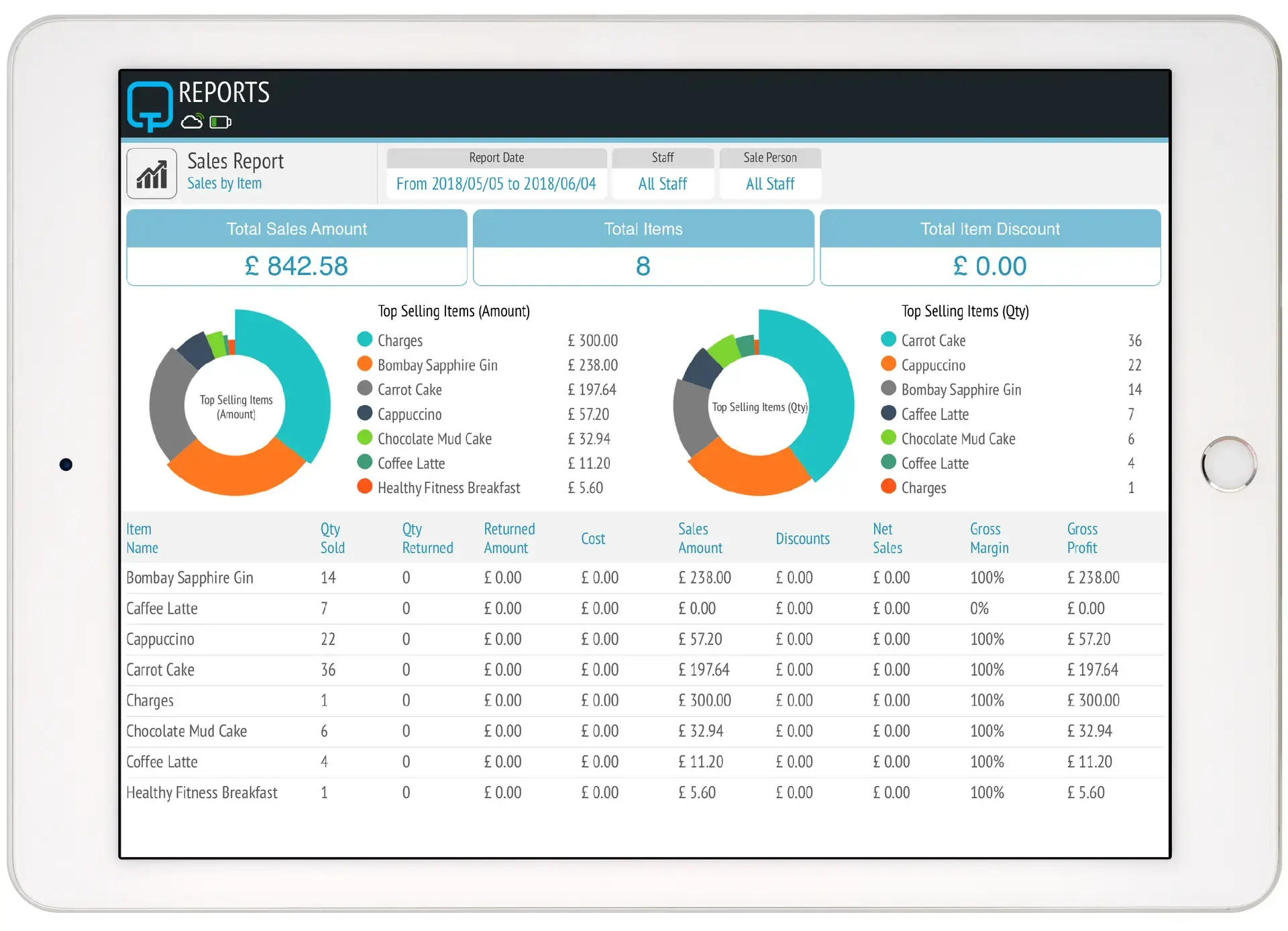
Secure User Permissions
When I tested Tillpoint’s secure user permissions, I found it to be a valuable feature for managing staff access. The system allows businesses to assign role-based permissions, ensuring that employees can only access the functions relevant to their responsibilities. This setup helps protect customer relationship management (CRM) data, financial reports, and other sensitive business information from unauthorized access.
For businesses with multiple employees handling inventory tracking, sales analytics, or multi-location management, having these security controls in place ensures data integrity while maintaining operational efficiency. It also reduces the risk of accidental errors or changes to critical settings, making the POS software more reliable for day-to-day business management.

